Innovating in space for the benefit of the Earth





Kylie Ho, Senior Director of Strategy and Tim Collins, VP of Global Supply Chain at Blue Origin join us to discuss the key innovations helping the company make space more accessible for the benefit of Earth.

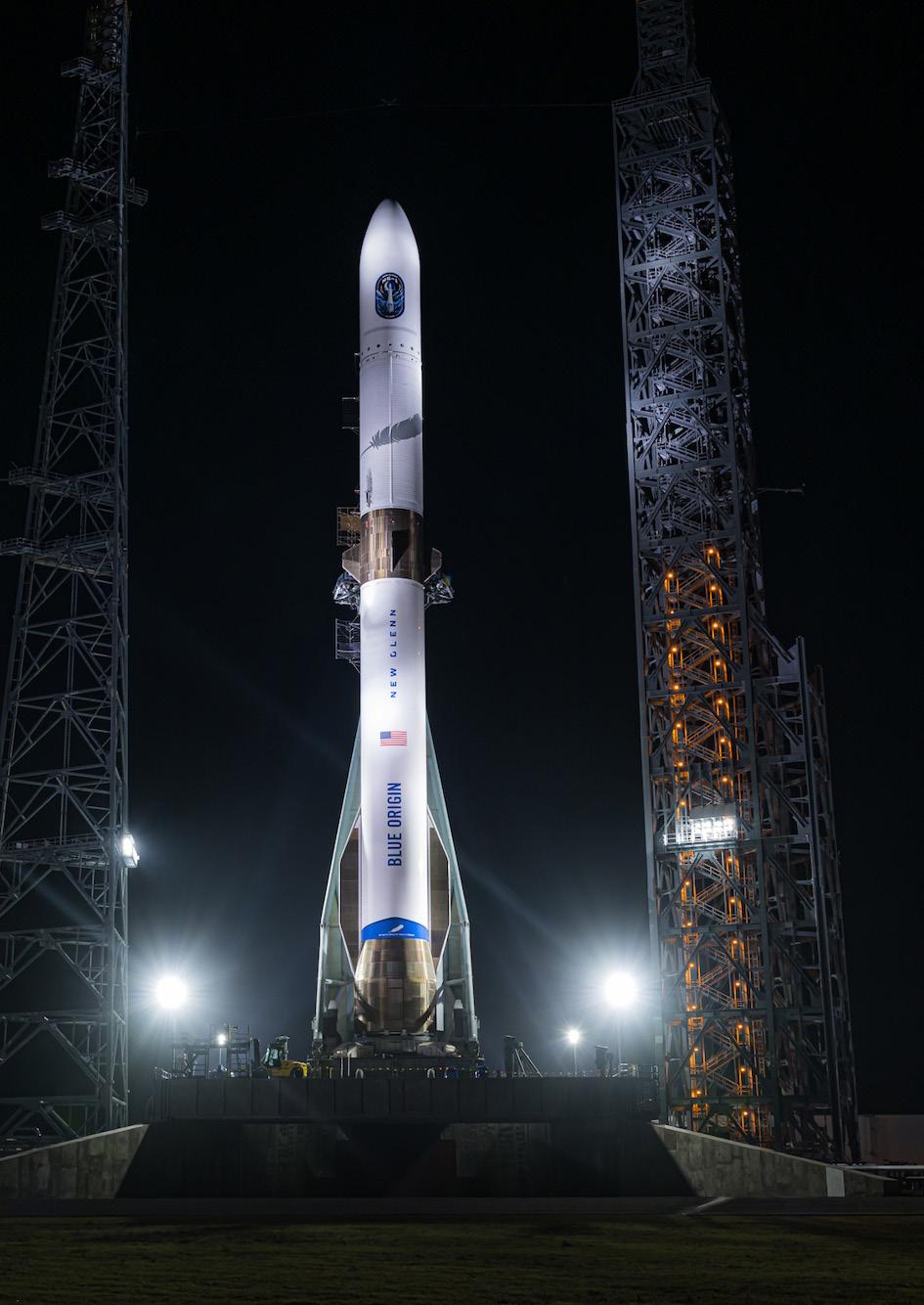
With rocket technology, mission of access
Watch The New Shepard Astronaut Experience
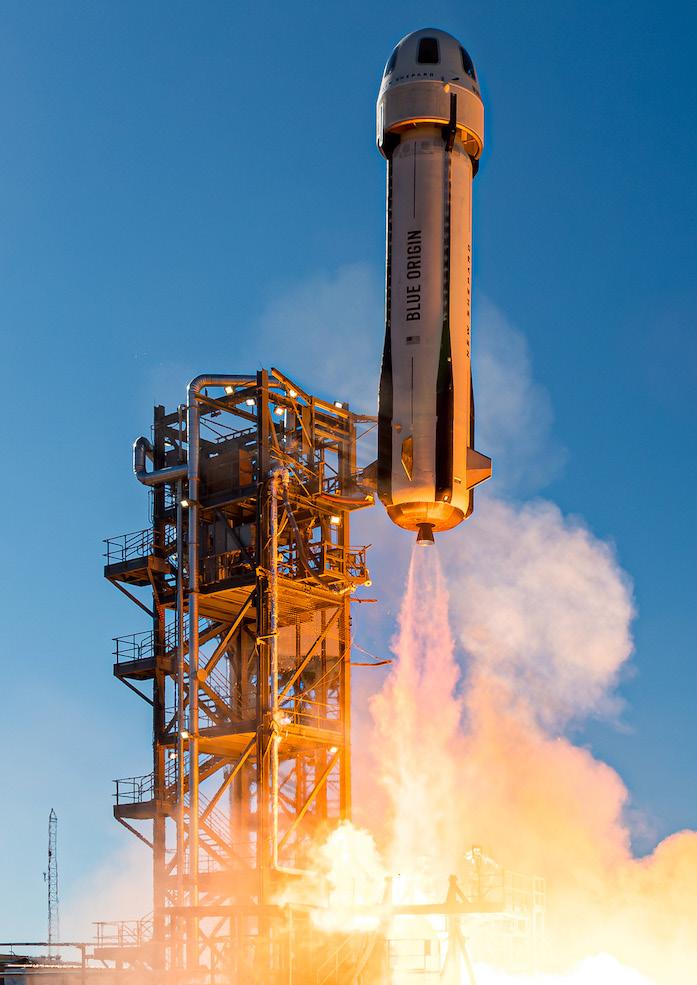
With its first-of-its-kind reusable rocket engines and innovative launch technology, Blue Origin is on a mission to radically reduce the cost access to space. he company has a longterm vision of greatly increasing the number of people that fly into space, with its sights set on a future where millions of people will be able to live and work in space to benefit the Earth. Its two reusable rockets, New Shepard and New Glenn, have launched 51 people into space so far across 11 human spaceflights.
Joining us from Blue Origin is Kylie Ho, Senior Director of Strategy and Tim Collins, VP of Global Supply Chain, to explore how Blue Origin is leveraging emerging technologies across the organisation to enable
innovation in space and serve its central mission. To begin, Kylie outlines Blue Origin’s vision for the future of the industry.
“Blue Origin was founded by former Amazon CEO Jeff Bezos, with a very particular vision in mind,” says Kylie. “We want to enable a future where millions of people are living and working in space for the benefit of the Earth. Our planet is finite and fragile, but it’s also the perfect home for humanity – so we want to keep it happy and healthy for future generations.
“Meanwhile space is limitless, with a vast expanse of resources that we can
“What we procure and the companies we partner with play a significant part in making space more accessible”
Tim Collins, VP of Global Supply Chain at Blue Origin
harness to benefit life on Earth –for instance, by augmenting our energy consumption.
“We’ve seen energy consumption increase dramatically on Earth. Even if there are significant improvements in our energy usage efficiency, researchers still project that it won’t be enough to meet our growing demands on our planet and its finite resources. To balance this, we can turn to using the resources available in space to protect our planet.
“To make this possible, we first need to dramatically reduce the cost of access to space. If you’re going to leverage space to benefit Earth, you need to have routine, reliable, low cost and safe access to space, and

facilitating that is one of our earliest and most important foci to date.

“Additionally, even if you can offer increased accessibility to space, you still need to effectively leverage space resources, as it’s impossible to bring everything with you from Earth to space. That’s why we’ve been prioritising work around the Moon, as it’s our closest celestial body with resources like water, ice and precious metals. This can help us support activity in space to nurture life on Earth. We often say that we want to build a road to space, and the Moon is a vital stop for supplies along that road.
“It’s important to acknowledge that this is a long-term journey that we’re on. We don’t expect to have millions of people living and
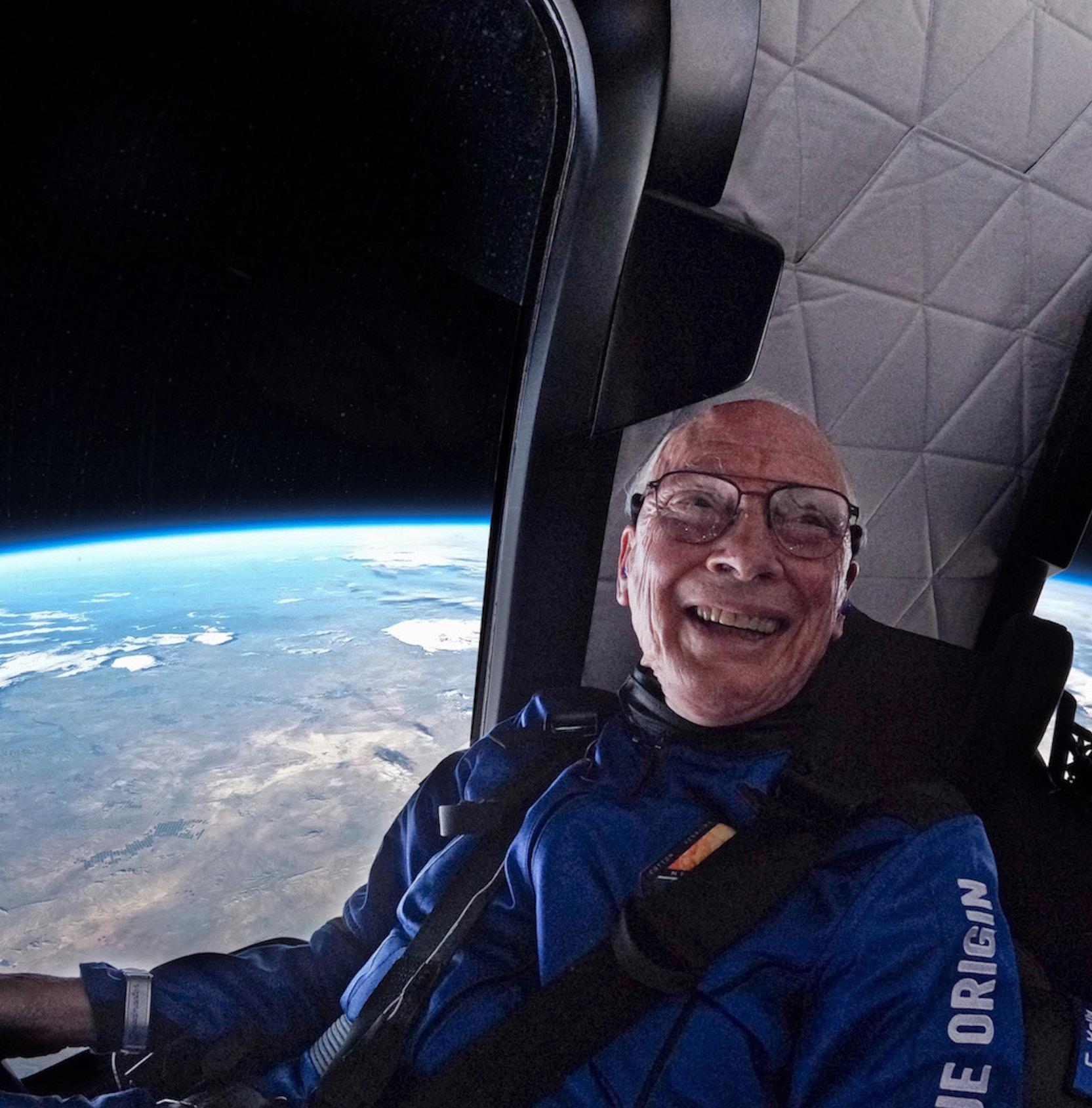
working in space anytime soon, so we need to inspire the next generation to carry this mission forward. Therefore, we do a lot of work from a strategic perspective to ensure that we are educating the next generation about these critical issues and arming them with the skills and education to help to create that future.”
As Tim explains, a key aspect of achieving this mission is Blue Origin’s procurement strategy.
“What we procure and the companies we partner with play a significant part in making space more accessible,” says Tim. “We’re looking for reliable partners to work with, because not only does that provide us with a highquality product but also leads to lower long-term costs – crucial when we’re aiming to offer reduced cost access to space.
“For instance, Precision Fluid Controls has been a phenomenal partner for
us, providing us with a number of different components. They’ve been a supplier who’s really leaned into the innovation and value engineering side of things – they want to work with us to produce products efficiently and creatively. With them, we’ve been able to drive our cycle time down by half, which in turn has helped us significantly drive down costs.
“When you look at the total strategy of what we are doing as an
organisation – through innovative design, materials and partnerships – our supply chain operations are absolutely central to our success.”
Tim also emphasises the work Blue Origin does with MSC as being central to the company’s mission to provide lower-cost access to space.
“MSC is another company that provides us with a number of different components – a lot of our

“We have a series of programmes – starting with our New Shepard suborbital rocket – to help us achieve our mission of increasing access to space”
Kylie Ho, Senior Director of Strategy


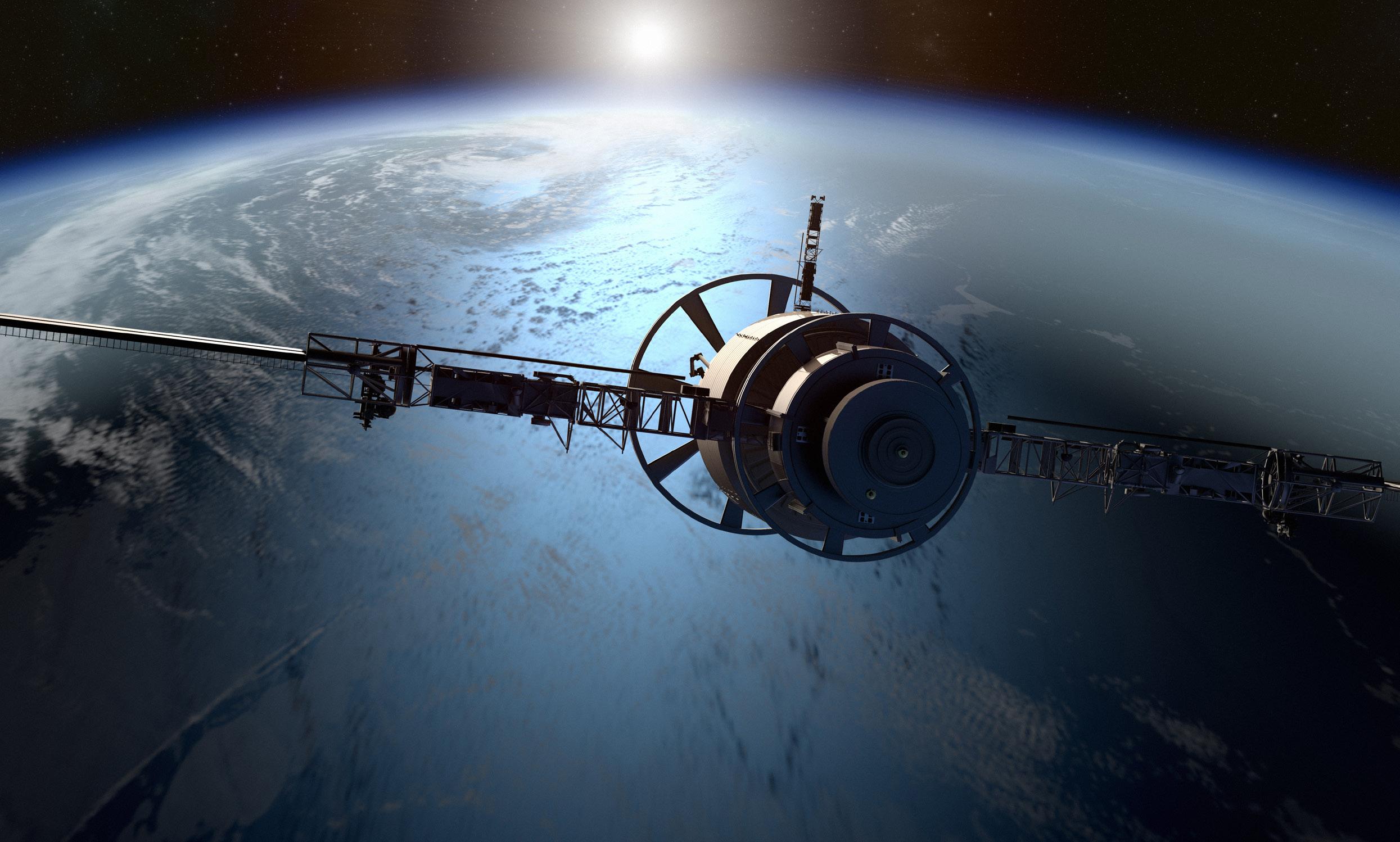
In the space industry, even the tiniest part plays a crucial role in driving progress and exploration forward. For more than 35 years, SeyTec has distributed the highest quality hardware, fasteners and supply chain solutions for leading aerospace and defence OEMs.



At SeyTec, we are upward thinking and all about making the impossible possible. Backed by over 560 years of combined aerospace industry experience, our expert team is ready to help you navigate supply chain challenges and open the door to progressive innovations.

Woman-Owned Small Business setting a new standard for diversity in STEM
National Aerospace Standards Committee (NASC) member
Provider of industry-leading fasteners, small electronics, wiring harnesses, custom kits and more
Trusted by Blue Origin and other major OEMs
Key partner in the Artemis Program, contributing to the return to the moon
Innovative and custom-tailored solutions that exceed aerospace industry standards for quality and reliability
Seamless VMI execution rooted in just-in-time delivery principles
End-to-end supply chain optimisation and cost-saving logistics
At SeyTec, we take immense pride in our small part of the global journey into the final frontier by supplying the critical hardware that enables the space sector to lift off. Our solutions are not just built for today, but designed to meet the challenges of tomorrow, ensuring our customers remain at the forefront of space technology. Together, we are not just reaching new heights – we’re redefining them, one part at a time.
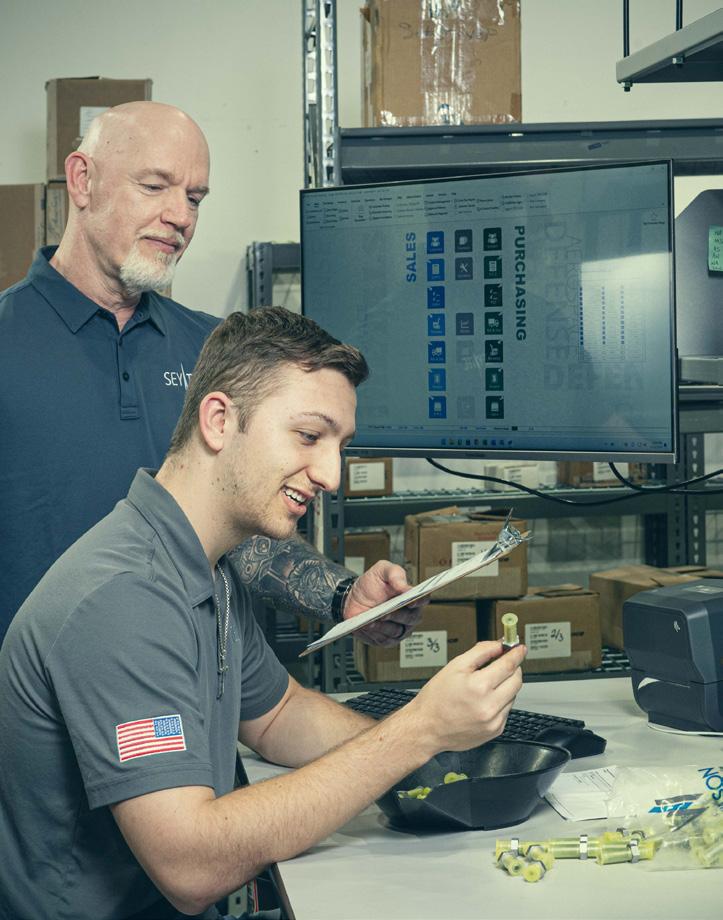

industrial components and materials,” says Tim. “They’ve been incredible. With any engagement we have with them, they’re always finding ways to make things better for us.
“For instance, they’ve found ways to aggregate the procurement of two or three kinds of materials and package it together to save us a lot of money and lead time. They really are partners to us, and they have made a real difference in helping us innovate within the supply chain.”
Having a robust supply chain network is crucial for a company like Blue Origin, particularly at such a significant point in time for the commercial spaceflight industry. Here, Kylie jumps in to explore the programmes and innovations Blue Origin is developing to provide new commercial activities on Earth.
“We have a series of programmes – starting with our New Shepard suborbital rocket – to help us achieve our mission of increasing access to space,” explains Kylie. “Almost 20% of all women who have gone to space have gone on a Blue Origin flight, and we’re looking closely at how we can change the makeup of who has access to space.
“Traditionally, only select governments with enough funding were able to explore space, but we built up our New Shepard programme to open this up to private citizens. These aren’t professional astronauts, so the entire
“We’re building tremendous heritage and expertise into things like liquid propulsion systems, vertical take-off and vertical landing, and feeding forward that knowledge into New Glenn”
Kylie Ho, Senior Director of Strategy
experience was designed to be very safe and very simple. Since launching this programme, we’ve been lucky to have the oldest and the youngest people ever go to space on our rocket.
Ultimately, New Shepard was designed to be our first step in opening up commercial activity in space.
“We’ve since taken a feedforward approach to New Glenn, our larger orbital rocket, which we were able to successfully launch in January of this year – thanks to our prior work on New Shepard. We’re building tremendous heritage and expertise into things like liquid propulsion systems, vertical take-off and vertical landing, and feeding forward that knowledge into New Glenn.”
Blue Origin’s newest rocket, New Glenn is designed to accommodate a
variety of payloads and destinations to meet the broadest range of customer needs – significantly reducing cost per launch.
“As we move forward with New Glenn, we imagine that we will see significant opportunity for the commercial sector,” says Kylie. “For instance, we’ll need commercial satellite operators who provide broadband internet, direct cellular connectivity and data backhaul to support our increasingly connected world. These are all fields that are going to further ignite commercial activity here on Earth.
“Humanity also has the opportunity to unleash our creativity with New Glenn. New Shepard opened up a new regime
of opportunity with commercial private space travel, and New Glenn is going to open up additional opportunities for entrepreneurial activities from our customers and partners.
“This approach will then feed forward into our other systems –things like our Blue Moon Lunar Lander, built to access the lunar surface in partnership with NASA’s Artemis programme. And we’re also getting a lot of interest from commercial customers, who can see the potential of the untapped lunar surface.
“We’re also very excited about further utilising our Blue Ring


platform, which is a highly manoeuvrable spacecraft that can go between the Earth and the Moon, and even to Mars, to help us open up access to space and unleash new creativity as it relates to science and to our commercial customers.
“Every single one of our products are about creating the layer of infrastructure that enables entrepreneurship, new ideas and innovation. We’re excited to engage with customers who want to leverage these new systems and create opportunities that weren’t available ten years ago.
“That’s what makes the space age today so exciting – we’re at the cusp
of real transformation. New Shepard is our first foray into the world of pioneers going to space as private citizens, but orbital access is going to increase significantly over the next several years. What we’re trying to emphasise is how we can best utilise these platforms and the space environment to benefit the Earth.”
These new innovations are making significant progress in the commercial spaceflight industry, and Blue Origin is excited to further this work.
“We were the first company to land a booster vertically in 2015 with New Shepard, but that was years in the making,” says Kylie. “To see that technology through we needed things
“Automation is crucial to our operations, both in our plants and through our wider logistics strategy”
Tim Collins, VP of Global Supply Chain at Blue Origin
like liquid propulsion systems that are throttleable and allow you to reignite and land under a powered engine.
“There’s been a lot of exciting innovations with New Shepard, and we’re taking those innovations with us as we develop our New Glenn rocket. It leverages a version of the New Shepard engine, is powered by the same fuels and is similarly vertically landed to allow us to reuse the rocket.
“As we apply everything we’ve learned to our New Glenn rocket, we’re looking forward to many more launches. In future, we’re hoping to undertake deep space missions to the Moon and Mars, as well as a whole host of opportunities for access to orbit with New Glenn.
“However, we have some other exciting items on our roadmap, like our Blue Moon Lunar Lander. That lunar lander is built to allow us to have a sustained
presence on the lunar surface, so we’re ready to return to the Moon – this time to stay.
“We want to establish a permanent presence there, because it is the closest celestial body with valuable resources we can tap into, it provides amazing learning opportunities to understand how to have long duration crewed missions on a lunar or planetary body and it allows us to explore options for space mobility solutions and habitats.
“All of these things are really beneficial for learning when it relates to the Moon, but the first step is being able to access it routinely, safely and at a sustainable cost.”
But, as Tim explains, this high level of transformation would not be possible without Blue Origin’s commitment to innovating within its supply chain network.
“Supply chain operations never used to be at the forefront of an organisation,” says Tim. “However, with so much innovation taking place, it’s become much more centralised and really is an exciting place to be. For instance, AI is playing a huge role in our global system – we’re weaving it into everything we do, from visibility with our partners to the transfer of documents.

“Automation is crucial to our operations, both in our plants and through our wider logistics strategy. Weaving AI with material handling is
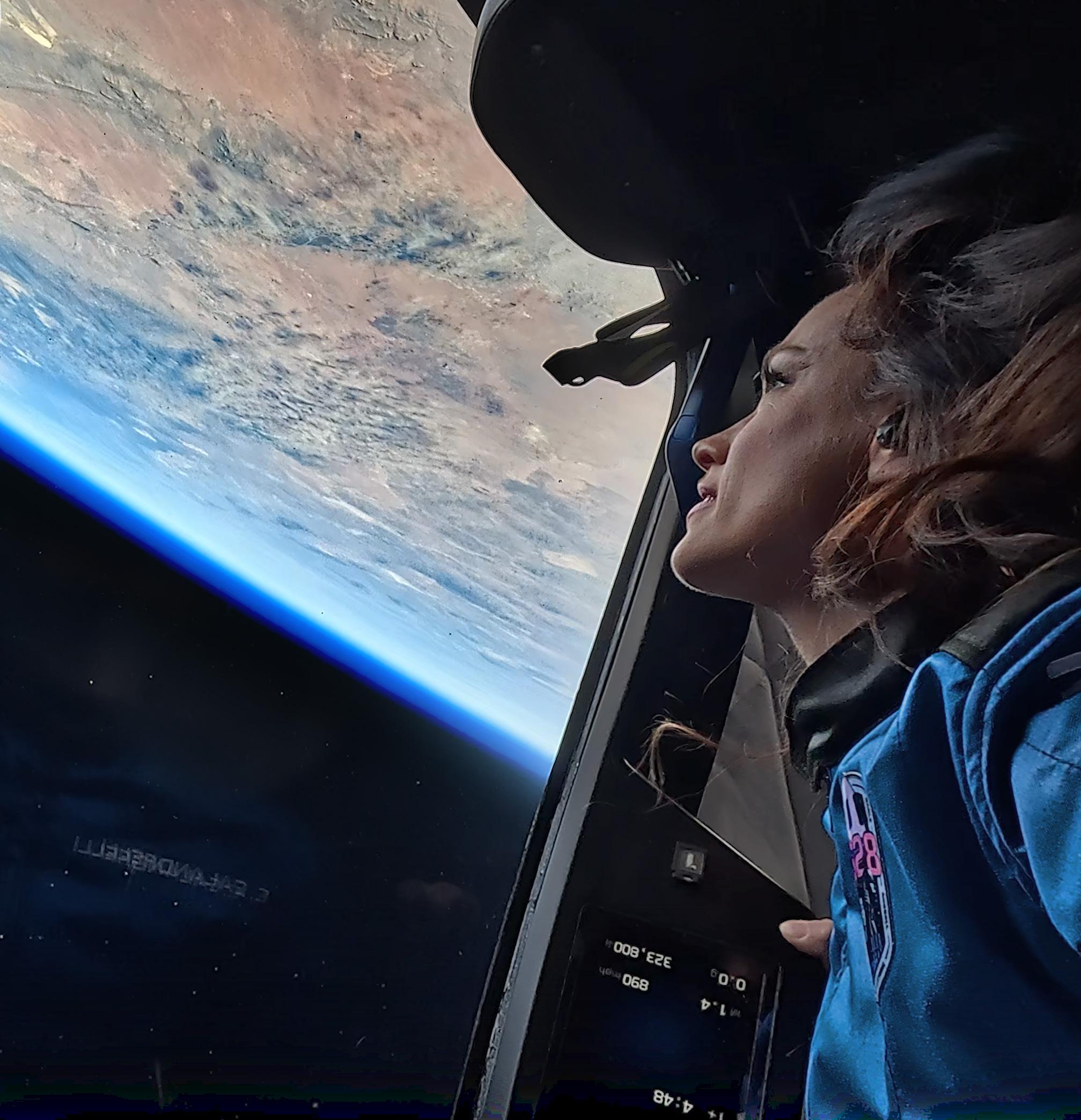
a big strategic driver for us, which makes these processes symbiotic. The software that drives our automation is building on itself to make material handling and manufacturing automation more efficient and run that much smoother.
“It’s an incredibly exciting time to be working in supply chain. I’ve seen
more innovation in supply chain in the last couple of years than the last couple of decades. It’s creating huge opportunities for us to drive our mission forward and significantly lower the cost to get into space.”
Blue Origin’s supply chain operations also play a key role in the company’s sustainability initiatives.
For more than 80 years, businesses like Blue Origin have counted on MSC to provide innovative best-in-class solutions and customised plans to drive productivity, improvements and cost savings in an ever-changing environment.

Trusted Advisor - MSC partners with you to meet your specific goals to drive supply chain optimisation, scalability and standardisation.
Empowering Growth - As a leading industrial distributor, MSC helps you achieve higher productivity through effective and innovative cost savings solutions.
Award-Winning Commitment - Proud recipient of Blue Origin’s 2023 Environmental Award for reducing our carbon footprint.
Preferred MRO Partner - Selected as Blue Origin’s preferred MRO partner to reduce Total Cost of Ownership (TCO). Contact us today. mscdirect.com
“Sustainability is at the core of everything we do,” emphasises Tim. “Ultimately, our mission is to benefit Earth, and our innovation in space will help make the planet much cleaner. On the supply chain side of things, we talk about sustainability every single day.
“With any potential supplier, we engage with them to understand their sustainability practices, and how they innovate within that – whether that’s through their operations, their products or through Value Engineering.
“We also look at everything that we procure, and the raw materials those products come from to ensure
we’re taking as sustainable an approach as possible. By looking at the secondary and tertiary supply chain of every single product we can better understand the efficiency and sustainability of any given part or product.”
With this foundation, the company is turning its focus to new heights –partnering with NASA on its Artemis programme.
“NASA’s Artemis programme, which is this generation’s version of the Apollo era that first brought humanity to the Moon, is all about developing lunar capabilities that are then extended onto Mars,” explains Kylie. “We’re excited to be working with NASA

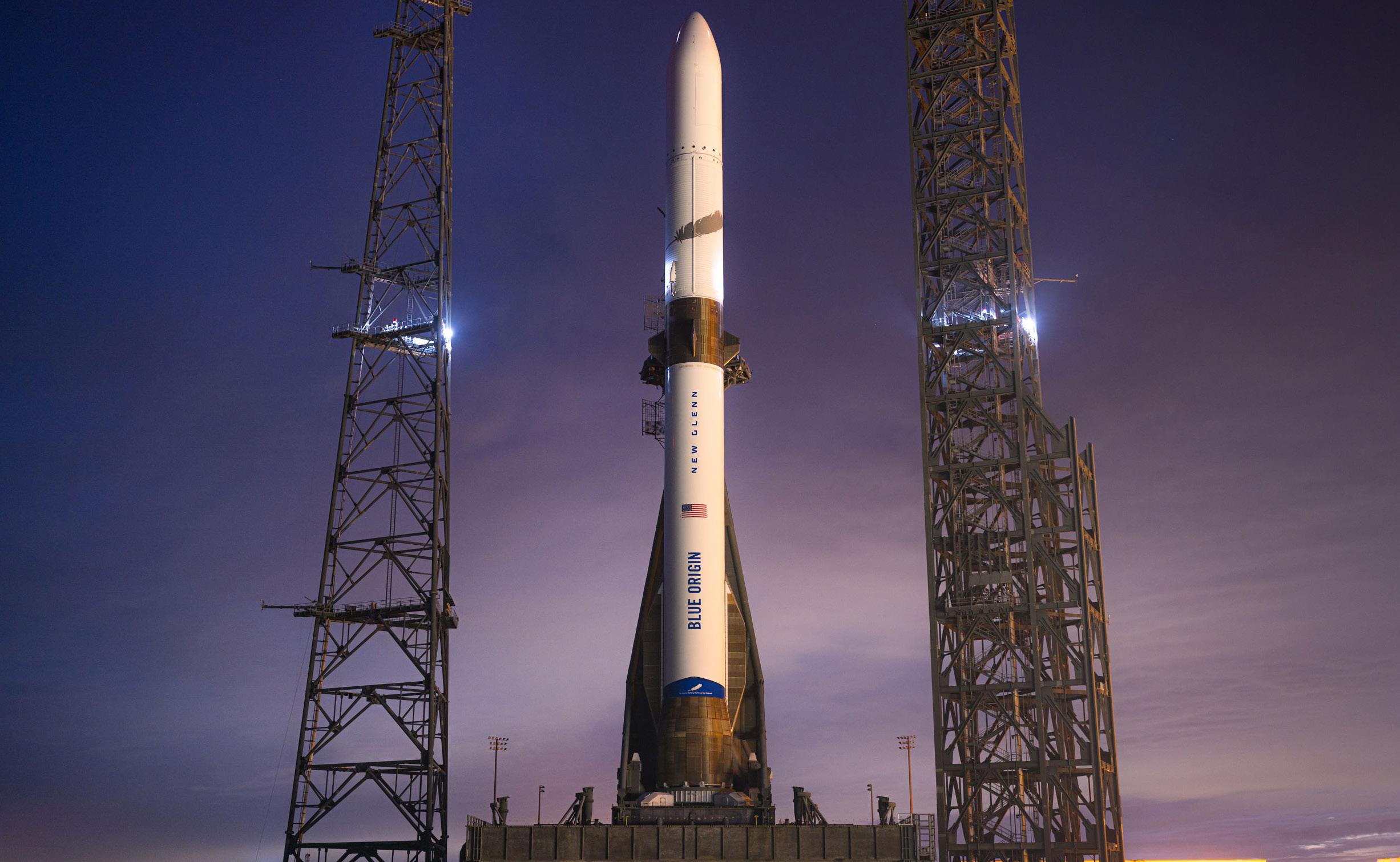
“This is such an exciting time for the industry, and we’re very privileged to be a part of it”
Kylie Ho, Senior Director of Strategy
to support these objectives and help to develop a permanent crew presence on the Moon and Mars.”
Here, Tim weighs in to explain the work Blue Origin is doing with its key suppliers to help them get from the Moon to Mars.
“To get to Mars, we need to do everything we can to build a more efficient, more capable supply chain,” says Tim. “One of the ways we’re doing this is by making sure we effectively engage our suppliers. The work we’re doing is super exciting, and our suppliers love it. When you engage a supplier about making things more efficient then they want to help you, but if you can tell someone that they can help us get to Mars with their products and services then it’s a completely different conversation.”
Two such suppliers Blue Origin is working closely with on this mission are global manufacturer Linde and leading aerospace component distributor Seytec.
“Linde is a long-term partner for us,” says Tim. “They provide a lot of our


Linde is a leader in industrial gases production worldwide. Our liquid hydrogen, liquid oxygen, nitrogen, specialty gases like helium and xenon, and metal powders, boost the limits of space exploration.
The possibilities for the future are endless as space travel and technology continue to advance. Linde is excited and honored to support Blue Origin’s success.
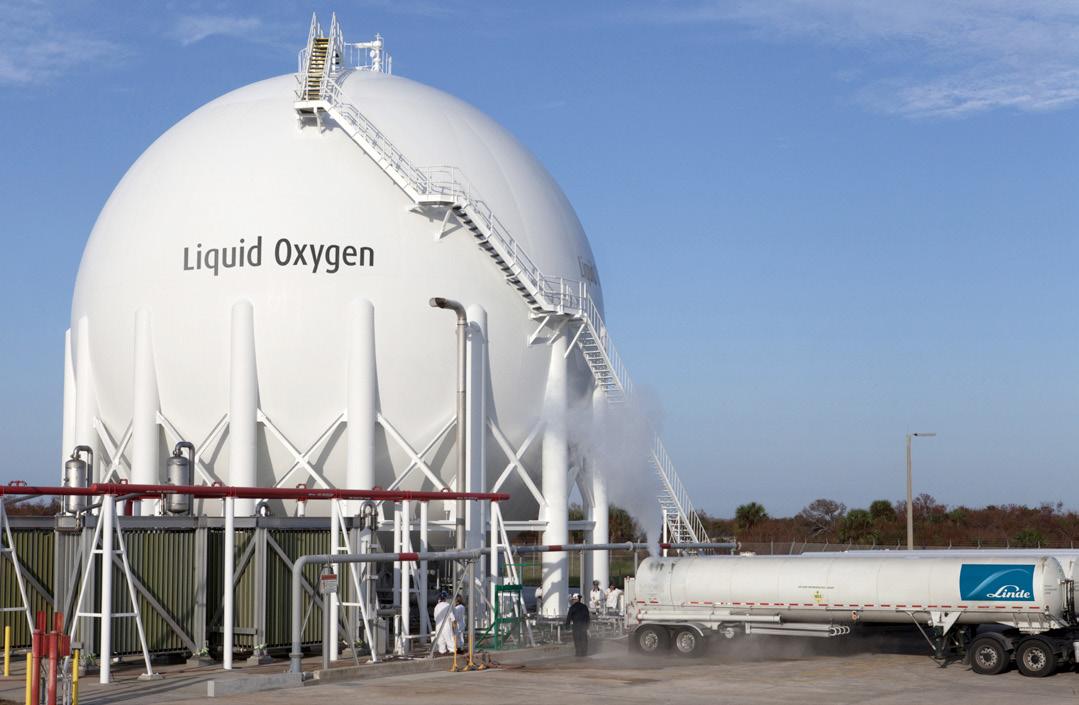
10 Riverview Drive, Danbury, CT 06810

Providing the aerospace industry with bespoke products for over 20 years
Precision Fluid Controls, Inc. (PFC), an AS9100 company, designs, manufactures and tests valves and pressure controls for aerospace propulsion, flight, on-orbit and ground applications.
With a large portfolio of products, we quickly provide solutions for extreme service requirements or create new products based on customer specifications.
Products include main engine valves, vent valves, pressurereducing regulators, check and relief valves, sleeve and butterfly valves – among others.
PFC’s division, Martin Testing Lab (MTL), is an environmental testing lab with extensive test capabilities including vibration, shock, thermal cycling, salt fog, material testing etc.
PFC customers include most commercial launch companies, NASA facilities and launch and test sites.
PFC’s 77,000 sq ft facility is equipped with multiple 4 and 5 axis mills, live tool lathes, several mill/turn centers plus a full quality department with multiple CMMs. PFC has a large clean room for precision cleaning of components and multiple high pressure test cells.





precisionfluidcontrols.com

propellants to our testing and launch operations, and they’ve always been incredible. In this business, things don’t always go exactly as planned, but Linde have been super innovative, reacting really well whenever there’s a disruption or delay.
“If we’re going through a potential launch, Linde knows all the details and is able to think through anything that could go wrong and how we can mitigate that to ensure we’ve got an uninterrupted supply of propellants and fuels. We couldn’t do what we do without Linde.
“Meanwhile Seytec is another great company – they’re a distributor that handles a wide variety of both direct and indirect components for us, and they’ve been incredibly supportive in helping us get things as efficiently as possible.
“Their team is often onsite, at our different operations across the country to concretely understand what it is we do and offer their expertise in making our operations more straightforward.
“It’s a fantastic opportunity, to engage with their team’s ingenuity, experience and ideas. They’re constantly offering better, stronger ways to approach a new initiative, and our partnership with Seytec is a model of the kind of partnership we’re looking for from our suppliers.”
Outside of Blue Origin’s work with NASA, the company is striving to facilitate more opportunities for new players in the space flight industry.
“We’re actively collaborating with international agencies to support their scientific objectives,” says Kylie. “I believe that this will be a key driver for humanity's expansion into space, and we want to make this an international effort.
“Initially only a select few governments could access space, but we now have significantly more space-faring nations – from across Europe to Japan, India, South Korea, the United Arab Emirates and beyond.
“One of the exciting things about reducing the cost of access to space and opening this up is that we’re getting more diversified players who want to be a part of humanity’s role in space. They want to engage in science, they want to engage in international partnerships, and we’re excited to work with them and support their initiatives as it relates to space exploration. This is such an exciting time for the industry, and we’re very privileged to be a part of it.”
Learn more about Blue Origin here.
Turn over for Added Value with Kylie and Tim. How To Book A Flight To Space
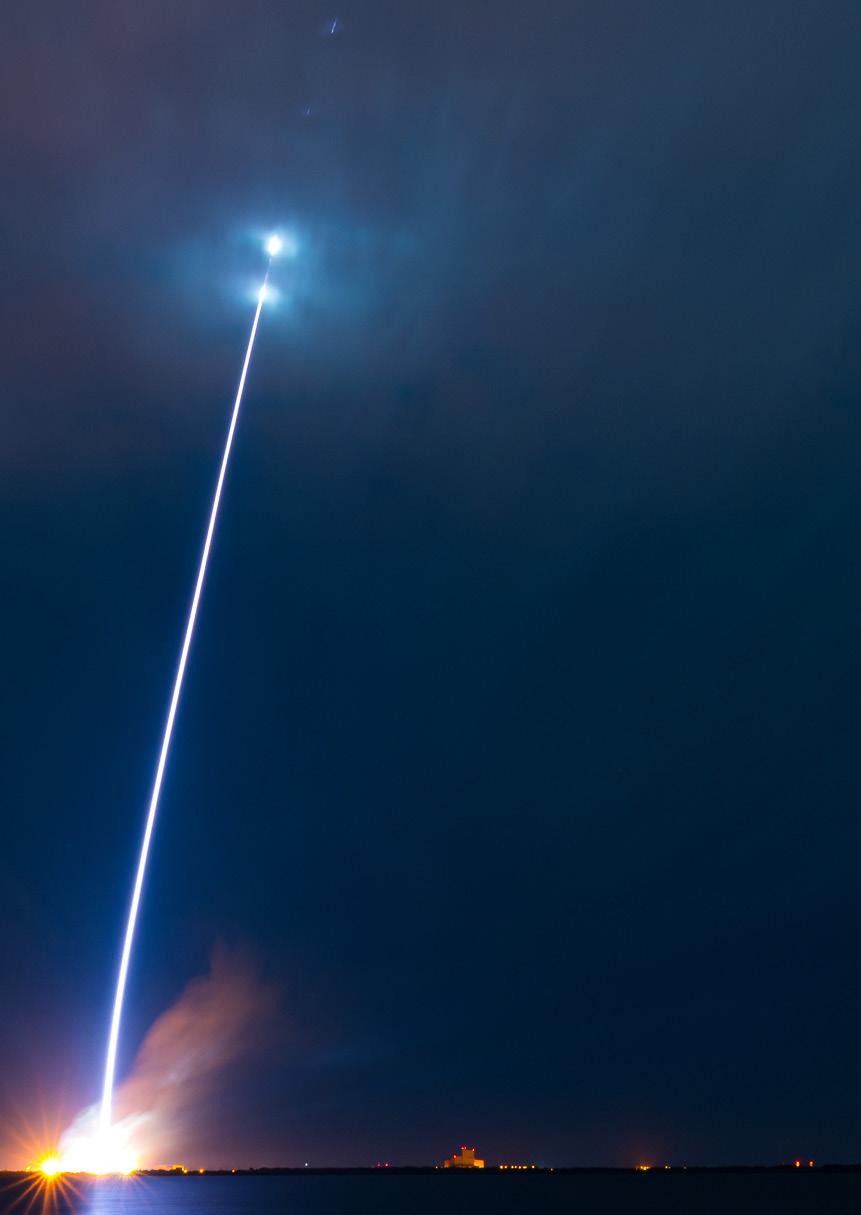

“For our company, inspiring the next generation is a strategic imperative,” says Kylie. “We spend a lot of time engaging with the next generation – from elementary school to college students – to create an awareness that what we do here isn’t unattainable. We need people who bring a diversity of skills to build upon the opportunities for innovation and consider the political and legal ramifications of space exploration.
“I spend a lot of my time talking with students to educate them about the opportunities that exist to have a career in space. Of course, we’ll always need rocket scientists, people with a PhD in aerospace engineering. However, people don’t always realise that this industry truly is for everyone, and the people we’re really in need of in this industry are the technicians and builders who want to engage in creating these projects very tangibly on the factory floor.
“It’s so rewarding to educate students that this is a real opportunity that they can pursue, and I’ve spent a lot of time supporting them through Club for the Future, our nonprofit organisation focused on inspiring the next generation. We’ve worked closely with students and teachers to build curriculums that they can engage with to help them understand that space is closer than they may think.”
“As a part of our work with Club for the Future, we’ve been focused on our Postcards to Space initiative,” says Kylie. “It was designed to get a tangible piece of space in the hands of children of all ages, to make it accessible to them.
“With this programme, anyone around the world can take a postcard and write a message for their vision of life in space and send it to us. We then fly it on our New Shepard rocket to the 100-kilometre Kármán Line – the international boundary of space – and then land it back on Earth safely. It’s then stamped as being flown in space and mailed back to you. We’re trying to think of new ways to give people a little bit of space and help them get involved.”
Connect with Kylie


“I’m super fortunate to be a part of this organisation,” says Tim. “We’re learning from some of the most innovative supply chain organisations on the planet, and we couldn’t do what we do here without our phenomenal people.
“Our work is super exciting, and it all comes down to getting the best people on the planet from the best technology and manufacturing companies. The team we’ve been able to build is what I’m most proud of in this role, and having the opportunity to build such a capable supply chain with this team is the best part of my role.”
Connect with Tim